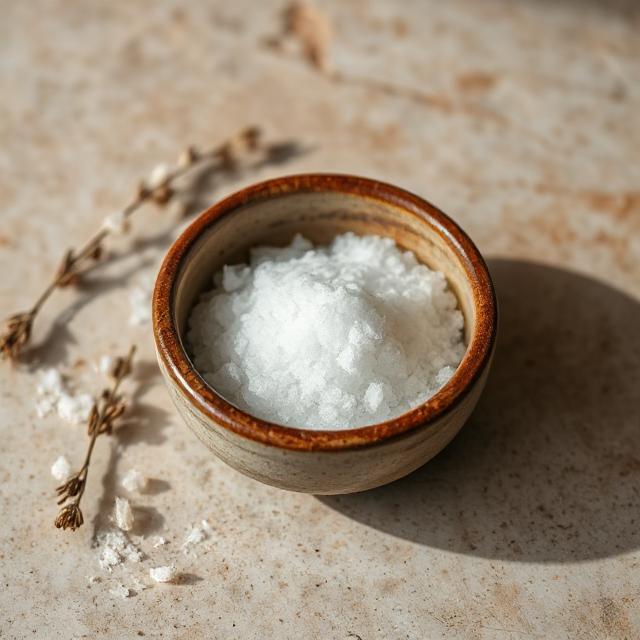Salt therapy, also known as halotherapy, is gaining recognition as a natural and effective method for lung detoxification and managing various respiratory problems. Dr. Barbara O’Neill explains how salt therapy can help cleanse the lungs, reduce inflammation, and support respiratory health, making it a promising option for people suffering from conditions like COPD, asthma, and bronchitis.
What Is Salt Therapy?
Salt therapy involves inhaling tiny salt particles, which reach deep into the lungs and airways. These particles help to loosen mucus, reduce inflammation, and promote the body’s natural cleansing mechanisms. This process is often referred to as lungs washing treatment or lung detoxification.
There are various ways to administer salt therapy, including:
- Salt inhalers or salt inhaler machines — portable devices that release salt particles for inhalation.
- Salt rooms — controlled environments where salt is dispersed into the air.
- Use of salt inhalers is common, and devices like the Saltra inhaler are popular for their convenience and effectiveness.
How Does Salt Therapy Work for Lung Detoxification?
Dr. Barbara O’Neill highlights that salt therapy helps clear the respiratory tract by drawing moisture out of inflamed tissues and breaking down thick mucus that can clog airways. This action allows the lungs to expel toxins and improve airflow, which is essential for lung health.
Salt’s natural antibacterial and anti-inflammatory properties also help reduce infections and soothe irritated lung tissues. These benefits are crucial for individuals with chronic respiratory diseases.
Salt Therapy for Respiratory Problems
Salt therapy has been used as a complementary treatment for several lung conditions, including:
- COPD (Chronic Obstructive Pulmonary Disease): Studies and clinical experience show that salt therapy for COPD can improve breathing, reduce coughing, and decrease mucus production. Salt inhalation therapy is considered a supportive treatment to conventional COPD management.
- Asthma: Salt therapy may ease symptoms by reducing airway inflammation and helping clear mucus.
- Bronchitis and Sinusitis: Salt’s cleansing effects relieve symptoms and promote faster recovery.
Dr. O’Neill also discusses the benefits of salt therapy for animals, especially horses with COPD, where it helps clear respiratory passages and improve lung function.
Is Salt Therapy Good for Your Lungs?
Many people ask, “Is salt therapy good for COPD?” or “Does salt therapy help COPD?” Research and anecdotal evidence suggest that salt therapy is generally safe and beneficial for lung health when used properly. However, it should complement, not replace, medical treatments prescribed by healthcare providers.
Salt therapy is considered a gentle, natural way to support the lungs’ self-cleaning process, helping to remove pollutants, allergens, and mucus buildup.
Salt Inhalers: Benefits and Usage
A salt inhaler is a small device that releases microscopic salt particles for inhalation. The salt inhaler benefits include:
- Portable and easy to use anywhere.
- Non-invasive and free from side effects.
- Helps reduce coughing and promotes lung clearing.
- Supports overall respiratory well-being.
In Pakistan and other regions, salt inhaler price varies depending on the brand and features, but devices like the Saltra inhaler are becoming increasingly popular. Instructions for Saltra inhaler use typically involve inhaling salt particles for a few minutes daily to experience lung-cleansing benefits.
Salt Room Therapy and Lung Washing
Salt rooms provide an immersive environment where salt is dispersed into the air in controlled amounts. This method is often used for lungs wash or lung washing treatment, helping patients with chronic lung issues detoxify their lungs over several sessions.
Salt therapy can also reduce symptoms of emphysema by improving lung capacity and decreasing inflammation, though it is best used alongside conventional treatments.
Lungs Treatment in Urdu and Accessibility
For Urdu speakers, many resources explain lungs cleaning treatment in Urdu and how salt therapy can be part of a natural respiratory care plan. With rising interest, respiratory salt therapy is becoming more accessible worldwide, including portable salt inhalers and local salt rooms.
Conclusion
Salt therapy is a valuable natural treatment that supports lung detoxification and respiratory health. From salt inhalers to salt rooms, this therapy offers relief for chronic lung conditions such as COPD, asthma, and emphysema by helping clear mucus, reduce inflammation, and promote lung cleansing. Dr. Barbara O’Neill’s insights confirm the growing importance of salt therapy as a complementary approach for lung care. While not a cure, salt therapy enhances lung function and overall respiratory wellness, making it an effective option for many seeking natural lung detoxification.



